A farewell to EVMs

We may all breathe a sigh of relief that the brouhaha over the EVMs is finally over, with the Election Commission deciding to forego the use of the electronic machines in the upcoming parliamentary election citing a lack of funds. Since it was first introduced in 2018, there have been widespread fear about its fool-proofness to electoral tampering; in particular, concerns were raised about the audit cards via which election results are collected, which are vulnerable to manipulation in the absence of a voter-verifiable paper audit trail (VVPAT). Despite strong reservations from many political parties, including the BNP, and civil society actors, the EC, till now, seemed hell-bent on going ahead with its decision to use EVMs, finalising a massive Tk 8,711 crore project for EVM procurement and management last year.
We are glad that the EC has finally seen reason, if only in consideration of the enormous expenses that the project would entail. Back when the proposal was first made, we had warned the EC against such an expensive undertaking in the midst of the worst economic and cost-of-living crisis in over a decade, particularly given that Bangladesh was buying the EVMs at inflated costs. Now that the EC has retracted its position, we wonder what will happen to the 150,000 EVMs already bought in phases since 2018, at 11 times the price of the machines in India. EVMs worth Tk 642 crore have already become unusable for a lack of proper storage facility and maintenance, according to EC documents. We urge the EC to make sure that our remaining stock – paid with taxpayers' money – are stored properly so that they may be used in the future, if and when it is decided, through political consensus, to switch to EVMs.
While the decision to scrap the EVMs is a step in the right direction, the EC must not lose sight of the fact that there are many other pressing issues that it must address before the public, and other political parties can be confident that the upcoming elections will be free, fair and participatory. Foremost among them is ensuring full independence of the EC, and guaranteeing the ever-illusive "level-playing field" for all political parties. Unfortunately, the performance of the EC in the by-elections, except for one notable exception, has not inspired confidence in its ability to rise above and rein in party politics. As it tries to engage with other political parties and to ensure them of its neutrality, the commission needs to remember that it is only through its commitment to the electoral process – rather than the party in power – that it can inspire faith about its ability to guide the nation to a democratic future.
The EC must also prove its ability to ensure compliance of the administration and law enforcement in playing their part in defending the democratic process. It must not be seen as reflecting the increasingly intolerant stance of the government towards critics, human rights defenders and the media.
The BNP, on its end, must forego its propensity to reject any and all proposal and initiatives of the EC, without due consideration or discussion. Such wholesale rejection will not produce constructive results, and risks jeopardising not just future prospects for the party, but the country at large.

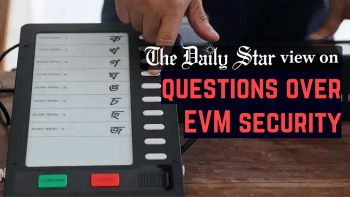
 For all latest news, follow The Daily Star's Google News channel.
For all latest news, follow The Daily Star's Google News channel. 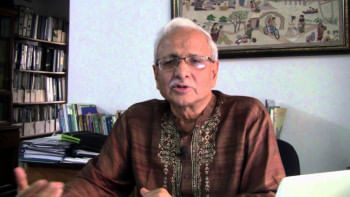
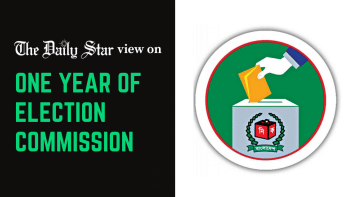


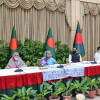



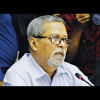


Comments